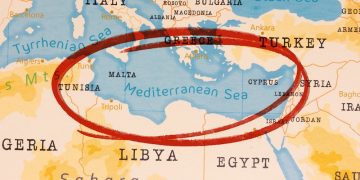“An important step forward: the establishment of a ‘green zone’ extending to the entire Lagoon is a fundamental, essential aspect of the process of dealing with the issue of large cruise ships in Venice,” were the words chosen by Venice’s mayor, Giorgio Orsoni, to welcome the voluntary agreement between cruise lines on the use of green fuel upon passing the entrance to the Lagoon harbour, signed on March 22 by cruise lines and the city of Venice.

Following the first Venice Blue Flag agreement, signed in 2007, which called for the use of special, less polluting fuels when docked, the new agreement with the international association CLIA Europe, representing the major cruise lines, and with strong support from Mayor Orsoni, envisages the use of ‘zero-impact’ fuel upon entering the Lagoon.
“We expect that the competent institutions,” commented Mayor Orsoni, “will provide a clear, practical solution – I hope in the near future – to the issue of the compatibility of the transit of large cruise ships through St. Mark’s Basin. However, the city demanded answers concerning the reduction of pollutants in the air, and this second agreement allows us to solve a problem that Venice has always regarded as a priority and that required action.”
Cruise ships have voluntarily decided from now on to enter the Lagoon using only green fuel and adopting the strictest measures to reduce air pollution.
In fact, through the agreement, known as “Venice Blue Flag II,” cruise lines commit to operate the main and auxiliary engines of their ships with marine fuel with sulphur content of no more than 0.1% (lower than the EU guidelines, which recently set restrictions at 0.5%) immediately upon passing the Lido harbour entrance and while travelling through the Lagoon’s marine canals. It also charges the Coast Guard with using its personnel to conduct adequate supervision in order to verify observance of the agreement. Fuel analyses will be provided under a specific agreement signed by the Coast Guard, Port Authority and Customs Office.
“It is important to emphasise the commitment, in this case also of an economic nature, by the cruise lines,” the mayor added, “and in particular that of Michael Thamm, CEO of Costa Crociere, and of Pierfrancesco Vago, CEO of MSC and vice-president of CLIA Europe, who on more than one occasion proved highly understanding of issues relating to the environmental sustainability of the cruise industry in Venice. Thanks should also go out to the Venice Port Authority for its crucial contribution in achieving this important goal, and to the offices of the Municipality of Venice and the Council Office for the Environment for their passionate, fundamental work.”
Source: Venice Municipality































































